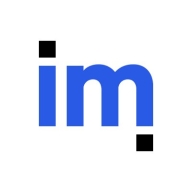

Imperva and Link11 both compete in the realm of web security and protection. Based on user feedback, Imperva seems to have the upper hand due to its customization abilities and comprehensive suite of features.
Features: Imperva offers DDoS protection, advanced bot management, and CDN services with a focus on security analytics, which users find highly beneficial. Its Web Application Firewall (WAF) is particularly robust, providing real-time monitoring capabilities. Link11 provides equivalent DDoS protection and load balancing with real-time traffic analysis, and users appreciate its straightforward deployment and ease of reporting.
Room for Improvement: Imperva could enhance integration with third-party services, improve interface intuitiveness, and streamline policy management for faster customer support response times. Link11 needs to expand customization options and offer deeper analytics to match Imperva's feature set. Both platforms could benefit from cost adjustments and more comprehensive reporting functionalities.
Ease of Deployment and Customer Service: Imperva supports a wide range of deployment models, including public, private, and hybrid cloud setups, providing users with flexibility but requiring considerable initial integration. Its customer service experiences vary between highly responsive and less satisfactory cases. Link11 promises a smoother deployment experience in both public and private clouds, with their customer service being praised for quick and efficient problem resolution.
Pricing and ROI: Imperva's pricing, while competitive within its feature scope, is often perceived as costly for multi-site coverage. Users typically justify its cost by the level of protection it provides, especially for high-security environments. Link11's pricing structure is more predictable and transparent, appealing to smaller setups due to its balanced cost against the provided functionalities. Both products deliver value in securing web assets, though ROI analysis varies depending on organization size and threat landscape.
They know how much money they are losing while the system is down, so by increasing the possibility of not having a down website or web application, return on investment can be calculated easily.
I would rate the technical support of Imperva DDoS as ten.
99% of customers are using the cloud version of Imperva DDoS protection, so they just purchase the new license and scale as needed.
The stability of Imperva DDoS is very good, as it seems they have a lot of servers around the world.
Maybe Imperva DDoS could use endpoints to get information about the attacks before they commence from the endpoint level or establish cooperation with endpoint vendors to share this information.
I would rate the pricing of Imperva DDoS as five, where one is very cheap and ten is very expensive.
I have utilized Imperva's Intelligent Traffic Filtering feature. This feature helps me understand how the attack is progressing and what is happening inside the requests to our website.
| Product | Market Share (%) |
|---|---|
| Imperva Application Security Platform | 8.2% |
| Link11 | 2.4% |
| Other | 89.4% |
| Company Size | Count |
|---|---|
| Small Business | 83 |
| Midsize Enterprise | 25 |
| Large Enterprise | 61 |
| Company Size | Count |
|---|---|
| Small Business | 5 |
| Midsize Enterprise | 3 |
| Large Enterprise | 2 |
Imperva Application Security Platform delivers comprehensive and continuous web threat protection. Renowned for its ease of use, it shields web applications and databases from various cyber threats while integrating seamlessly with cloud and on-premises environments.
Imperva Application Security Platform protects web environments by offering advanced security measures against threats like DDoS attacks, SQL injections, and cross-site scripting. As a robust web application firewall, it provides extensive monitoring and bot management capabilities. The platform integrates content delivery networks for enhanced performance and scalability, while real-time traffic analysis ensures consistent protection. Despite its strengths, improvements can be made in policy management and customization options. Users seek better integration with third-party tools and more competitive pricing models. The inclusion of AI for enhanced analytics is also anticipated.
What are the key features of Imperva Application Security Platform?Imperva Application Security Platform is implemented in industries needing strong database and application protection. Companies use it to enforce geolocation restrictions and manage bots, benefiting sectors like finance and e-commerce where data security and threat monitoring are critical. Its ability to protect and ensure data accessibility makes it integral to business operations prioritizing cyber resilience.
Link11, headquartered in Germany, offers cloud-based IT security services designed to prevent business disruptions, enhancing cyber resilience for IT networks and critical applications globally. Their services benefit industries across Europe, North America, and Asia with comprehensive protection.
Link11 provides a range of security and performance solutions, including Network Security, Web Application & API Protection, and Application Performance solutions. Their offerings encompass Network DDoS protection and an all-in-one WAAP solution, featuring Web Application Firewall, Web DDoS Protection, Bot Management, API Protection, and Secure CDN & DNS. A high-performance global network, monitored 24/7 by the Link11 Security Operations Center, ensures robust defense mechanisms.
What are the key features of Link11?Link11 is suited for industries wanting to protect web applications against Layer 7 DDoS attacks, cross-site scripting, SQL injection, and phishing attempts. Deployed on cloud models, Link11 integrates as a fundamental security layer, offering effective bot management and securing websites with multiple technologies.
We monitor all Distributed Denial-of-Service (DDoS) Protection reviews to prevent fraudulent reviews and keep review quality high. We do not post reviews by company employees or direct competitors. We validate each review for authenticity via cross-reference with LinkedIn, and personal follow-up with the reviewer when necessary.